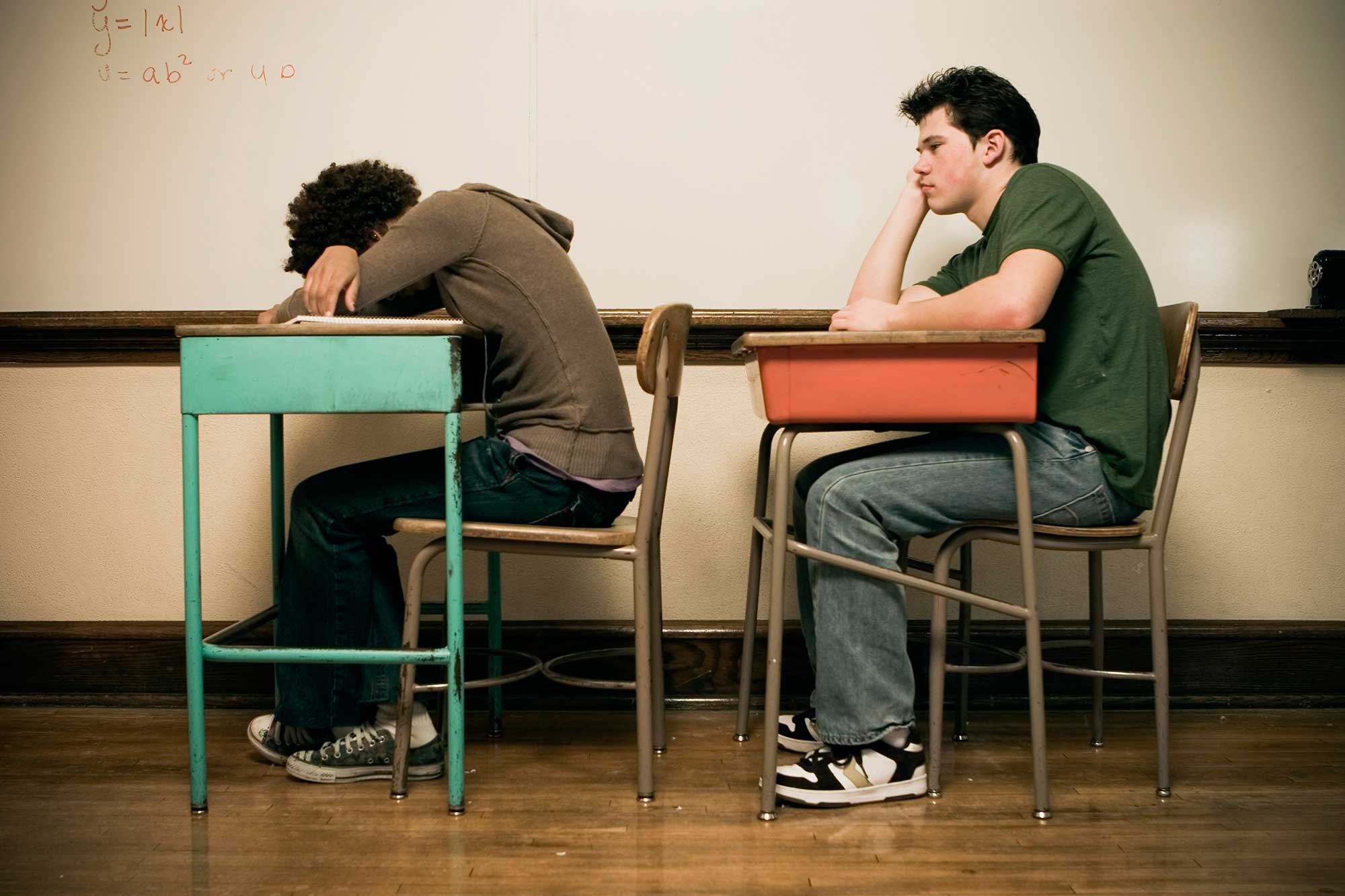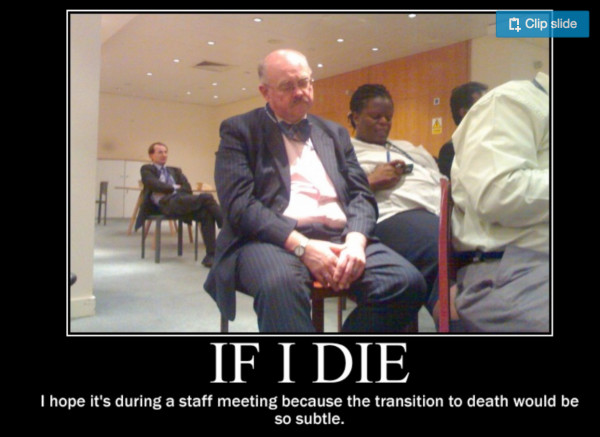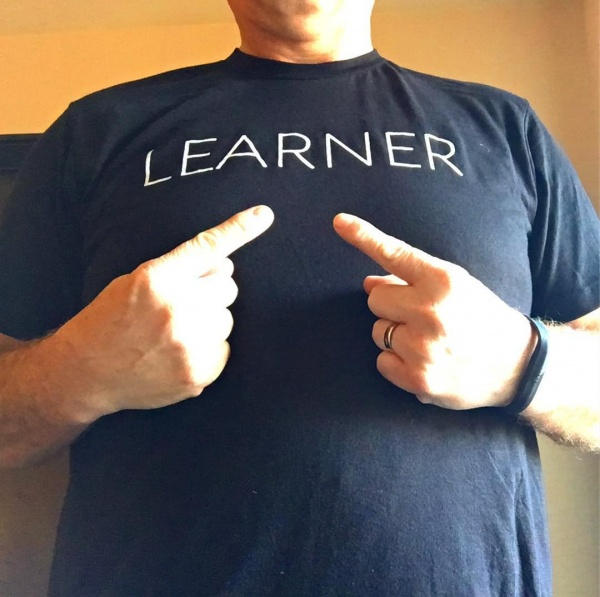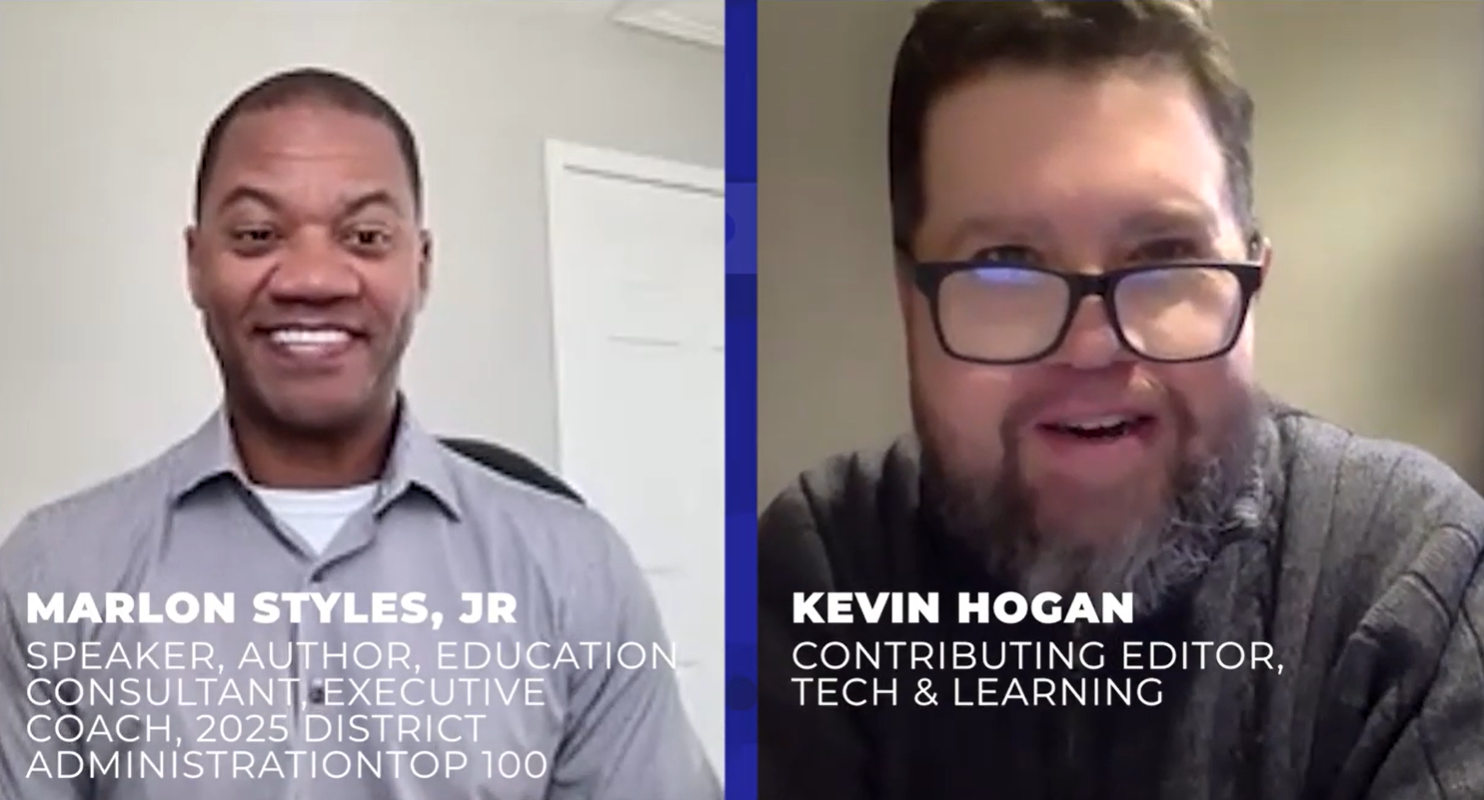Bad PD is Sometimes Your Own Fault

Tools and ideas to transform education. Sign up below.
You are now subscribed
Your newsletter sign-up was successful
Pro tip: If you want to make a group of teachers laugh, show them this image:

You can even change “staff meeting” to “PD session” and get the same results. Professional Development/Learning is to teachers what school is for many students. Ask a random group of students what they think of school and you’re sure to get answers related to boring or worse. it’s almost cliche. It’s also kinda cool to say school sucks.
While it may be cool to suggest that PD sucks and yes, it sometimes does, I think the difference between how students experience school and how teachers experience PD is different at least in 2 ways. First, as teachers, we chose our profession. Secondly, it is our job to model and be good learners.
Maryellen Weimer offers 7 characteristics of what makes someone a good learner. Along with being curious, and open-minded, I’d add they are willing to embrace some dissonance. The best learners can learn something from almost any experience. That’s partly what makes them a good learner.

There has certainly been an awakening in teaching that suggests teachers ought to be master learners, learners first and other statements which shifts education from being focused on teaching to focusing on learning and what it means to learn.
Along with this shift, student agency has become a recent pursuit: getting students to own their learning. This is a challenge given that school is still very much prescribed. The reality is adults still have most of the controls and variables around learning. While this might be concerning, it’s also a response to the nature of childhood. Younger students require more guidance and direction and in theory, a gradual release of responsibility and ownership should occur as students move towards adulthood.
We presume adults should be able to manage and control their own learning. Yet of course, in education, theory and practice don’t always match. I’ve been speaking and writing about autonomy and trust for a while. When it comes to Professional Development/Professional Learning we still have a ways to go.
Tools and ideas to transform education. Sign up below.
And yet.
I try my best to avoid absolutes in statements, thus the word “sometimes” is intentionally used in the title of this post. It’s obvious that some PD experiences and events are better than others. Katie Martin suggests it’s also important to re-define PD. People complain about boring speakers, lack of engagement and irrelevance as primary factors that make PD bad. These certainly exist but I also think that speakers, presenters or experiences need not always take the blame. Sometimes our expectations are misplaced. Here are some factors that often contribute to poor experiences:
Time: I often struggle when I’m asked to do an hour presentation. The reality is, an hour isn’t usually going to be life-changing and I fear that both presenters and sometimes participants expect that it might. Conferences and PD events typically use these small chunks of time and meaningful learning is really difficult. I’ve been guilty of complaining about the lack of depth by some presenters. I need to be more gracious in understanding their limits and the limits of time.
Community: A very common complaint of PD sessions is that they are “sit and git” and do not reflect what good teaching ought to look like. Valid point. However including “hands-on” activities should at least consider who the learners are. A good teacher designs learning to meet her students’ needs. When you’re presenting at a conference or even in a district, many times you have no idea who the people in the room are. In addition, your lack of relationship means you can’t dive into many things that typically require building relationships and trust. Yes, there are some things you can do but you also have a lot of limitations. Participants need to understand this.
Context: Related to community, it’s difficult to know the context of your audience. People sharing their experience in a rural, elementary context might not seem relevant to a high school teaching in an urban setting. Often when these differences are revealed, participants tend to shut down and begin to dismiss ideas. Presenters also have a difficult time making their ideas broad and relevant to every person.
I suppose the one big idea I’m nattering on about here is that each of us needs to take some responsibility for our learning. It’s easy to blame others but good learners can find truths, ideas and wisdom in almost any circumstance. That’s why we read books about business, go to movies, have conversations with people who aren’t in education and take those ideas and learn to apply them to our situations. The best learners can find truths and ideas in all situations.
What examples do you have of being able to turn a bad or perhaps seemingly irrelevant PD session and finding value for yourself? Conversely, if you offer PD, how do you tackle some of the issues I’ve shared?
cross-posted at ideasandthoughts.org
Disclaimer: This weblog contains the opinions and ideas of Dean Shareski. While there may be references to my work and content which relates directly to my work, the ideas are mine alone and are not necessarily shared by my employer.
Dean Shareski is the Community Manager of the Canadian DEN (Discovery Educators Network) and lecturer for the University of Regina. With 24 years of experience as a K12 educator and consultant, he specializes in the use of technology in the classroom. Read more at ideasandthoughts.org.
